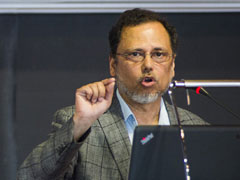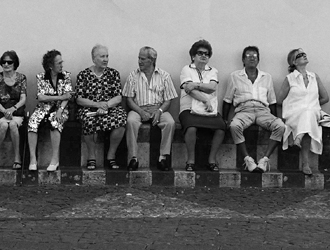The post-colonialism and modernity theorist explains how he considers public spaces and the need to discuss the new global affairs in them. He also speaks of a symbolic space of Kolkata, the Esplanade, as his favorite public space.
Shared spaces recorded this conversation with Dipesh Chakrabarty on June 2015, when he visited the Centre for Contemporary Culture (CCCB) to participate in his lecture "The Human Condition of the Anthropocene". Chakrabarty thinks that the traditional public space, as the European space of Plaza, holds local claims, histories and events. Although he admits that they are spaces with a lot of dynamism and also that they fit the definition of public, he thinks that they are not the most adequate places to debate global affairs.
In order to justify this bold statement, Chakrabarty thinks of more open institutions - exemplified with the CCCB, in this case - as a place where the issues of globalization, problems that affect the whole world and do not only take place in local environments, can be debated, and where experts and the public can meet to exchange knowledge and explanations to these issues.
Finally, the Physicist and PhD in History talks about his favorite space: The Esplanade, from the time of his childhood: A large public space with a small park, where the trams of Calcutta, Bengal, ended their route and changed its direction. For Chakrabarty, the place highlighted the plurality and diversity of activities, as if the site was a big stage, with the viewer being able to focus at his will samples of the city’s society.




